December 15, 2017
2017-2018 Magnuson Scholar Updates
The 2017-2018 Magnuson Scholars are:
Jonathan An
School of Dentistry
Travis Roark
School of Medicine
Afnan Hamad Alswyan
School of Nursing
Dennis Goulet
School of Pharmacy
Erica Lokken
School of Public Health
Sarah Jen
School of Social Work
Magnuson Scholar Updates
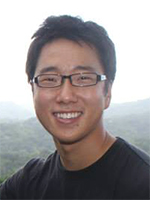 Jonathan An
Jonathan An
School of Dentistry
I am very honored to have been selected as one of the Warren G. Magnuson Scholars for 2017-2018 academic year at the University of Washington, Seattle. The Magnuson scholarship has provided me the support and motivation towards my Ph.D. work in oral health and geroscience.
Research on the basic biology of aging has progressed sufficiently that, for the first time, there is a clear path towards intervening in human aging to delay the onset and progression of age-related diseases and disorders, and significantly improve human healthspan. My dissertation in Dr. Matt Kaeberlein’s lab takes a novel strategy applying discoveries from the geroscience field to understand and treat a major unmet oral health concern for the elderly in the form of periodontal disease.
Since being selected as a Magnuson scholar, I have made substantial progress on my thesis and the scholarship has supported my studies through covering a portion of my tuition and helping the publication of my research in academic journals. The Magnuson scholarship has not just supported my Ph.D. studies, but assisted my membership in academic/professional organizations, covered my attendance in symposiums thus allowing me to extend my professional network, and allowed me to collaborate with other laboratories.
I sincerely thank the School of Dentistry for my nomination, and it is an honor to be a Warren G. Magnuson Scholar for 2017-2018.
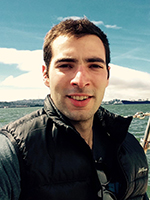 Travis Roark
Travis Roark
School of Medicine
It has been a true honor to be awarded the 2017/2018 Magnuson Scholarship. Not only has it been a tremendous financial support but it has been encouraging to feel the support of people who I admire and aspire to emulate in my life and career. Since my first year in medical school I have been working under Dr. Ian DeBoer at the Kidney Research Institute. My work has been a retrospective study of the renal pathology and clinical correlates in patients with diabetes and kidney disease.
Since receiving the Magnuson Scholarship, I have been able to finalize my data acquisition and analysis of almost 500 patients. In this study, we have found data not previously published which is very relevant to the diagnosis of kidney disease in patients with diabetes. I am actively working on a manuscript with a goal of submitting the work to a journal this winter. This would be a huge mile stone for me professionally. I have co-authored three papers but this would be my first, first authorship. The data that I have collected will also serve to launch future projects for myself or students coming behind me. I am grateful to the many, many people who have helped inspire and guide my research.
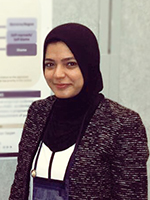 Afnan Hamad Alswyan
Afnan Hamad Alswyan
School of Nursing
I am extremely grateful and honored to have been selected as the recipient of the 2017–2018 University of Washington Magnuson Scholar. The Magnuson Award alleviates my financial burden so I may further my professional and academic career. During the past 3 years, I have put every effort into maintaining the highest level of academic achievement. The Warren G. Magnuson Scholarship has been essential in my pursuit of my research.
My research concerns quality of life and psychological disturbances of patients with implantable cardioverter-defibrillators (ICDs) devices. This device has been created for individuals who have either survived an episode of life-threatening ventricular arrhythmia (secondary prevention) or who are at risk for ventricular arrhythmia (primary prevention). This year, this award has helped me pursue this line of research and gain new knowledge that will inform my dissertation, which is researched using advance modeling statistical approach. Specifically, this award allowed me the opportunity to engage in this kind of work by being able to purchase software and run computer algorithms more efficiently and effectively on diverse set of statistical methods. The value of this analysis holds significant promise in determining the best care regimens that offer the best value for ICD patients and their partners over the longer term. The Warren G. Magnuson Scholarship has provided me with invaluable support for my dissertation work by providing excellent opportunities to prepare a manuscript that I will submit as a poster presentation for an upcoming cardiology conference.
This award has provided me much-needed motivation and career development and has also provided networking opportunities and programs available to professionals in the cardiovascular field. Without this award, I likely would not have had the resources to register for and attend The Heart Rhythm Society Annual Scientific Sessions. This organization provides the opportunity to network with colleagues in the cardiac rhythm management field, which incorporates cutting-edge practices and the latest health care research. Attending this conference will give me the kind of quality, constructive feedback that I need to help me improve my research.
The award also helped me to cover cost of attending Western Institute of Nursing (WIN) to present a group research work, “A Systematic Review of Exercise Training in Patients with Cardiac Implantable Devices.” I joined WIN nearly a year ago, and WIN has been one of most personally influential professional conferences and has helped shape my academic and professional career. As a researcher, attending this conference widened my knowledge in research, and I learned new methods that helped me carry out my analysis.
In addition, I am enthusiastic that this award helped me to join Golden Key, Sigma Theta Tau, and The American Heart Association. These societies bring together scientists in different disciplines to learn about diverse fields and research topics, and this interaction provides motivation to me to grow as a leader.
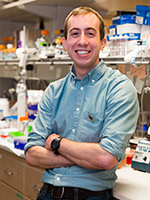 Dennis Goulet
Dennis Goulet
School of Pharmacy
Since receiving the Magnuson Scholarship, I have been working on several projects related to the development of antibody-based therapeutics. For one project, I characterized the kinetic mechanism of bispecific antibody formation. This information can be used to guide manufacturing conditions for the acceleration of large-scale bispecific antibody production. A second project has focused on prediction of antibody pharmacokinetics, or the rate of drug clearance from the body. With better predictive models, it will be possible to prioritize the development of long-lasting therapeutics that can be administered less frequently. Finally, I am exploring novel structural frameworks for antibody-based drugs, allowing for altered properties such as enhanced tumor-killing effector function.
The Magnuson Scholarship has helped immensely as I start the fifth year of my Ph.D. studies. The funds have not only supported a portion of my tuition, but also allowed me to purchase materials and software that facilitate the acquisition and evaluation of data. As a result, I have been able to analyze data more efficiently and gain new insights on the relationships between biophysical and clinical properties of antibodies. The scholarship is also supporting my attendance at the Antibody Engineering & Therapeutics conference in San Diego, where I will have the opportunity to present my research and learn from other scientists in the field.
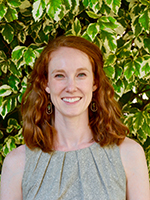 Erica Lokken
Erica Lokken
School of Public Health
Earlier this year when I was notified that I had been selected as a 2017-2018 Magnuson Scholar, I was in Nairobi, Kenya launching a study under Dr. Scott McClelland to assess the impact of periconceptual vaginal microbiota on women’s risk of preterm birth. My dissertation is nested within this project and will examine associations between periconceptual vaginal microbiota disruption and time to pregnancy. Since then, I have been managing study progress and the incoming data from Seattle, and returned to Nairobi for additional trainings in early December.
I am incredibly honored to have been selected for the Magnuson Scholarship. Support from the Magnuson Scholarship has provided me the with the freedom of time to focus on being a student researcher, to work more closely with the team in Nairobi to troubleshoot and guarantee study success, and to complete additional analyses in support of my dissertation work. For example, little was known about the association between body mass index and bacterial vaginosis (BV), a diagnosis associated with vaginal microbiota disruption. Since both low and high BMI are associated with reduced fecundity and infertility, if BMI is also associated with BV, it is an important confounder to consider in my proposed dissertation analyses. Using existing prospective data from the Mombasa Cohort, a cohort of high-risk women in Mombasa, Kenya, we were able to rigorously assess this association and recently submitted the manuscript for publication. The Magnuson Scholarship will also continue to support my abilities to attend conferences, to expand my network, and to seek out professional development opportunities. Altogether, the Magnuson Scholarship will be key to reaching my goal of improving women’s sexual and reproductive health through high-impact public health research.
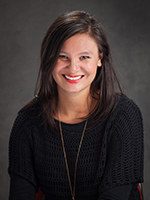 Sarah Jen
Sarah Jen
School of Social Work
I am incredibly honored to be selected as a recipient of the 2017-2018 Magnuson Scholarship. Being a Magnuson Scholar has meant that for the full 2017-2018 Academic Year, I can focus on my dissertation project, complete my doctoral studies, and pursue next steps in an academic position to begin my independent research and teaching career. My dissertation project is a discourse analysis of bisexuality among older women. Bisexual women experience several unique health-related factors and health disparities related to their sexual identity when compared to heterosexual- and lesbian-identified women. Quantitative analyses have revealed high levels of internalized stigma, low rates of identity disclosure, and poor access to social support resources, all of which influence their poorer mental and physical health outcomes in later life. My project offers an in-depth, nuanced understanding of how these factors evolve over the life course and how direct practitioners and researchers might intervene to promote better health and well-being not only for older bisexual women, but also for later cohorts of bisexual women as they age.
Since receiving the Magnuson Scholarship, I have made significant progress in recruitment, data collection, and analysis. The Magnuson funds freed up my time so I could focus on the project, supported my outreach and recruitment efforts, and allowed me to offer financial compensation to my participants for their invested time and energy. I also have been able to pay for a monthly membership to a web-based qualitative analysis program, Dedoose, which allowed me to analyze the data with ongoing, close supervision of the process by my dissertation committee who can access the data easily and from any location through Dedoose. Preliminary findings reveal unique factors, processes, and historical patterns that contribute to internalized stigma and limit the participants’ ability to access support from their biological families and LGBTQ communities. I am currently preparing to share these findings directly with communities that have assisted with my recruitment process and to publish the findings in several scholarly and community-based publications to reach a broad audience of researchers, practitioners, and seniors. I anticipate defending my dissertation and graduating in June of 2018. This timeline was made possible by the Magnuson funds and I am so grateful to have benefitted from this scholarship program.